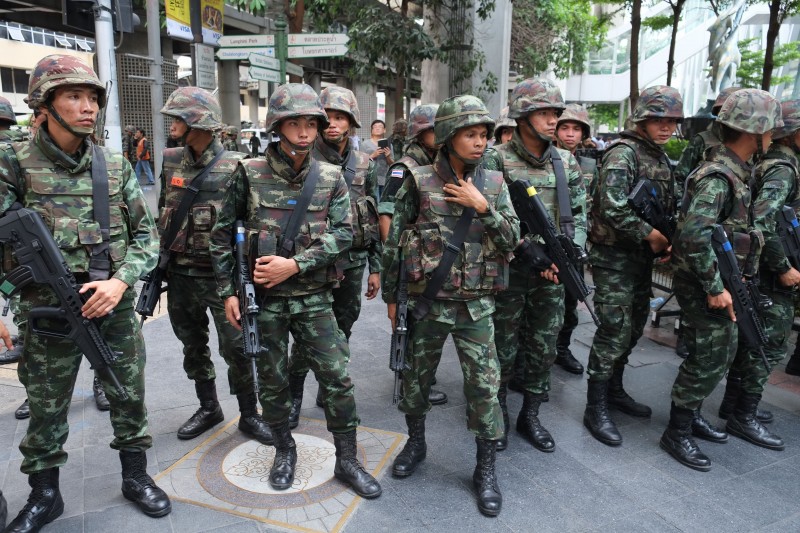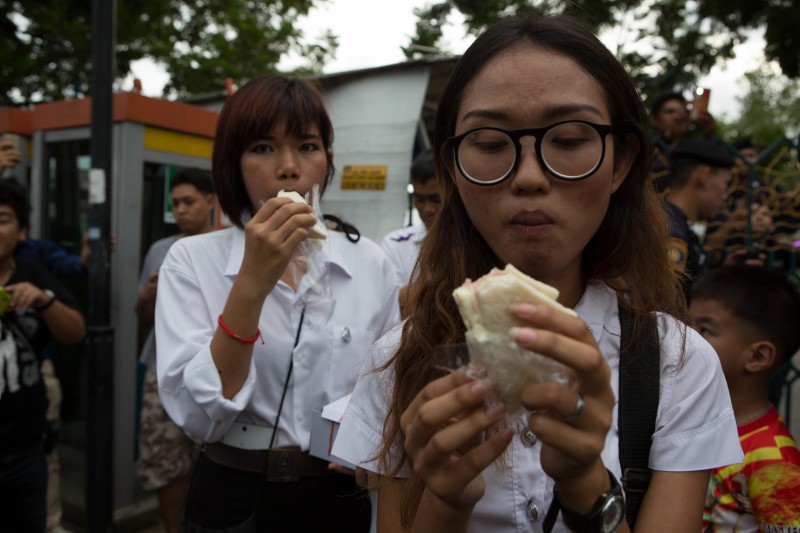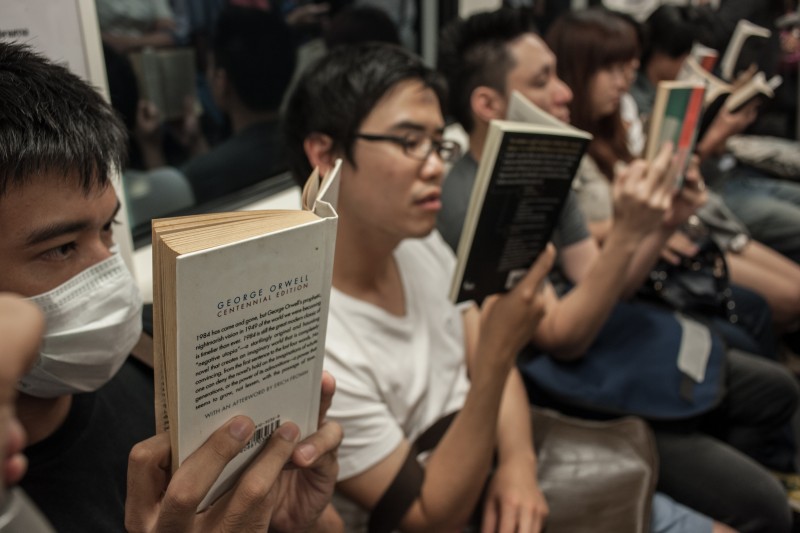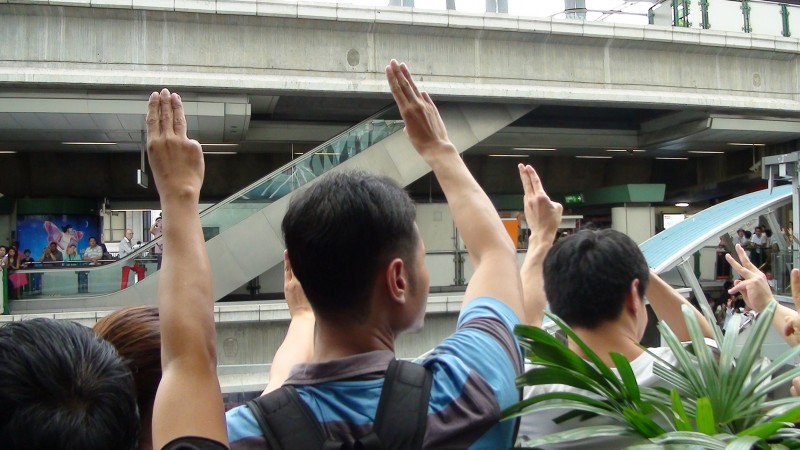
Armed soldiers stand on guard during an operation to control anti-coup protesters in Bangkok. Photo by Matthew Richards, Copyright @Demotix (5/25/2014)
Just over six months have passed since a military junta seized control of the Thai government and ousted the country's elected leader, Yingluck Shinawatra, in a coup on May 22. The junta quickly suspended the country's constitution, dissolved the legislature, placed sanctions on free expression and assembly, and temporarily detained a number of political leaders.
Despite this, Thai citizens have used social media to speak out and draw attention to conditions in the country. The following images are from the past six months:
1. Coup selfies
Newsy or a Doozy – ‘Aint no selfie like a Thai coup selfie'… @graciewtaylor pic.twitter.com/H2PIuZcKWT
— George FM Breakfast (@GRGFMBRKFST) May 27, 2014
The junta brought hundreds of armed soldiers and heavy weaponry to the capital on May 22. A number of people quickly approached soldiers to take ‘coup selfies’ that served both as political statements and updates on troop activity to the outside world.
2. Arrests and detention
For those who don't know, the woman with the red tape across her mouth is a journalist (a brave one). #ThaiCoup pic.twitter.com/FBBXzfYUxd
— แก้วมาลา Kaewmala (@Thai_Talk) May 23, 2014
The junta “summoned” political leaders and a number of democracy activists. Some of those who initially refused to report were captured and detained, and now face several years in prison.
3. Sandwich ban

Some students organized a picnic against the coup but it was stopped by police forces. The police and students shared some sandwiches. Photo by Atiwat Silpamethanont, Copyright @Demotix (6/6/2014)
The junta quickly placed limits on anything perceived to be political dissent. After political gatherings of more than five people were banned, activists organized ‘sandwich parties’ on social media. The junta quickly took notice and warned activists to stop.
4. Textbook revisions

Student activists protesting in front of the Thai Education Department. Image by Nattanan Warintarawet (second from right).
Shortly after taking power, the junta banned lectures, meetings, and demonstrations that they saw as a threat. Students and faculty that defied the ban were arrested and detained. The junta also mandated memorization of “12 Values” that focused on deference to authority, and tracked the movements of those who questioned them. The junta also revised history textbooks that edited out the name of former Prime Minister Thaksin Shinawatra, whose party has won all elections since 2001.
5. Censorship

Activists reading books on BTS sky train as a protest against coup. Photo by Yostorn Triyos, Copyright @Demotix (6/13/2014)
Along with other forms of dissent, the junta banned controversial books, such as George Orwell's “1984.”
6. The panda threat

Former Thailand Prime Minister Yingluck Shinawatra (left) with her brother, ousted Prime Minister Thaksin Shinawatra (center). Photo from Facebook of Yingluck.
The head of the junta chastised and warned journalists not to report on a photo of the two former prime ministers of Thailand, Thaksin Shinawatra and Yingluck Shinawatra, cuddling a panda on a visit to China, because it posed a “danger to Thailand's national security.” The photo has been interpreted by some as a sign of Beijing's political support for democratic forces in Thailand.
7. Hunger Games at #DistrictThai

Anti-coup protesters raise their hands in a three-finger salute as a symbol of struggle. Photo by Gonzalo Abad, Copyright @Demotix (6/1/2014)
Shortly after the coup, some activists used a three-fingered salute made popular in the film “The Hunger Games” as a form of political protest. As a sequel to the movie was released worldwide, Thai activists organized online to raise awareness about political authoritarianism in the country. They staged demonstrations outside cinemas in major cities and forced the cancellation of the film at some cinemas in Thailand.
Thai army leader and now designated Prime Minister Prayut Chan-o-cha has vowed to restore civilian rule by holding elections — but only after the junta has implemented the political and electoral reforms needed to restore political stability in the country. In the meantime, Thai activists continue to demand the end of military dictatorship.



